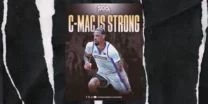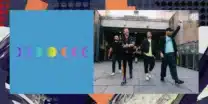IF you use TikTok daily, it might be high time to look for alternatives.
Recently, the National Security Council (NSC) has formed a task force assigned to investigate the social media app due to its possible consequences on national security. If it were deemed a national security threat, you might just have to kiss TikTok goodbye.
TikTok, which is controlled by Chinese company Bytedance, has raised concerns not only in the Philippines but in the United States and in Europe. In the US, TikTok is not allowed to be downloaded on government-issued devices, according to the Philippine Daily Inquirer.
Canada, Denmark, the European Union, Ireland, Taiwan, New Zealand, Norway, the UK and Australia have followed suit.
TikTok has since denied claims of using their user data in such a way, even stating that they have taken the necessary steps needed to further secure the data within their system. Whether this is true or not is yet to be investigated.
According to Johnathan Malaya, the NSC’s Assistant Director-General for Strategic Communications, the proposed ban will affect only government employees, particularly those involved in the national security sector, as a means of stopping data leaks or misusing government information.
However, National Security Adviser Edgardo Año has also stated the possibility that he would recommend a nationwide ban on the app to President Ferdinand Marcos Jr. if it were proven that it was gathering sensitive or private data from its Filipino users.
Gen Z react
As of January 2023, there are around 42.8 million people in the Philippines that use TikTok, with Gen Zs making up about 68.8% of that number. It’s no surprise that many of them have since shown that they do not support NSC’s decision if they were to enact a nationwide ban.
21-year-old Ellein Romero, who uses TikTok 24/7 as a means of relieving stress, said that while she’d be bummed if ever TikTok were shut down, it isn’t something she’d dwell on too heavily.
“I’m sure with how advanced our technology is becoming, once TikTok shuts down, another app will emerge,” she noted.
“[But] I don’t think banning TikTok in our country should be a priority; I feel like there are other more urgent matters that should be attended to. For me, TikTok is just an app with little to no difference [from] Facebook, IG, and Twitter,” added Romero.
20-year-old Gian Lee shared the same sentiment. He uses TikTok for around 14 hours a week for different purposes such as entertainment, education, socialization, and relaxation. For him, banning the app would prove to have little to no positive effects on teenagers.
He said, “Its user base is already gigantic given its wide range of purposes, especially online shops, although banning it may somehow minimize the screen time of teenagers and redirect their focus [to] going out, studying, and finding new ways of entertaining themselves.”
22-year-old Joshua Atienza, though, felt that banning the app wouldn’t make much of a difference in teenagers’ lives.
Atienza felt there’s no need to ban the app either but if it were banned, he’d simply continue to watch videos on platforms like YouTube or Instagram.
“I don’t think banning TikTok would make much of a difference on teens since other platforms support reel-type format videos on the internet, so instead of them spending time on the platform, I think teens would just find other substitutes in place of TikTok.”
Affecting one’s livelihood
Others felt that the implementation of a ban would prove to have some merit but would, at the same time, affect the livelihoods of many.
22-year-old Jan Charlemagne, for example, scrolls through TikTok practically every night before going to bed. Aside from using it to watch funny videos, she also uses the app for content creation for her art business.
“A lot of people use TikTok as their main source of income, especially now that it has a shop as well, but I can’t forget how it was also used for propaganda such as spreading fake news back in the 2022 elections,” she shared.
She added that while the ban wouldn’t affect her all that much, she felt that it wouldn’t be the same for people who solely use the app for their businesses. However, it might help to deter teenagers from consuming fake news, since others don’t bother to fact-check information they see on the app.
Charlemagne also added that as of late, TikTok has become an avenue to cyberbully people, so banning the app may also help to get rid of this issue, or at the very least, get rid of one platform where it’s happening.
“[However,] I still think of the other side of TikTok where people sell their products – it would cost [them] their livelihood,” she added.









